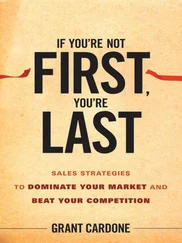Herbert Wells - First and Last Things
Здесь есть возможность читать онлайн «Herbert Wells - First and Last Things» весь текст электронной книги совершенно бесплатно (целиком полную версию без сокращений). В некоторых случаях можно слушать аудио, скачать через торрент в формате fb2 и присутствует краткое содержание. Год выпуска: 2003, Жанр: Философия, на английском языке. Описание произведения, (предисловие) а так же отзывы посетителей доступны на портале библиотеки ЛибКат.
- Название:First and Last Things
- Автор:
- Жанр:
- Год:2003
- ISBN:нет данных
- Рейтинг книги:5 / 5. Голосов: 1
-
Избранное:Добавить в избранное
- Отзывы:
-
Ваша оценка:
- 100
- 1
- 2
- 3
- 4
- 5
First and Last Things: краткое содержание, описание и аннотация
Предлагаем к чтению аннотацию, описание, краткое содержание или предисловие (зависит от того, что написал сам автор книги «First and Last Things»). Если вы не нашли необходимую информацию о книге — напишите в комментариях, мы постараемся отыскать её.
First and Last Things — читать онлайн бесплатно полную книгу (весь текст) целиком
Ниже представлен текст книги, разбитый по страницам. Система сохранения места последней прочитанной страницы, позволяет с удобством читать онлайн бесплатно книгу «First and Last Things», без необходимости каждый раз заново искать на чём Вы остановились. Поставьте закладку, и сможете в любой момент перейти на страницу, на которой закончили чтение.
Интервал:
Закладка:
The race flows through us, the race is the drama and we are the incidents. This is not any sort of poetical statement; it is a statement of fact. In so far as we are individuals, in so far as we seek to follow merely individual ends, we are accidental, disconnected, without significance, the sport of chance. In so far as we realize ourselves as experiments of the species for the species, just in so far do we escape from the accidental and the chaotic. We are episodes in an experience greater than ourselves.
Now none of this, if you read me aright, makes for the suppression of one's individual difference, but it does make for its correlation. We have to get everything we can out of ourselves for this very reason that we do not stand alone; we signify as parts of a universal and immortal development. Our separate selves are our charges, the talents of which much has to be made. It is because we are episodical in the great synthesis of life that we have to make the utmost of our individual lives and traits and possibilities.
2.10.
THE MYSTIC ELEMENT.
What stupendous constructive mental and physical possibilities are there to which I feel I am contributing, you may ask, when I feel that I contribute to this greater Being; and at once I confess I become vague and mystical. I do not wish to pass glibly over this point. I call your attention to the fact that here I am mystical and arbitrary. I am what I am, an individual in this present phase. I can see nothing of these possibilities except that they will be in the nature of those indefinable and overpowering gleams of promise in our world that we call Beauty. Elsewhere (in my "Food of the Gods") I have tried to render my sense of our human possibility by monstrous images; I have written of those who will "stand on this earth as on a footstool and reach out their hands among the stars." But that is mere rhetoric at best, a straining image of unimaginable things. Things move to Power and Beauty; I say that much and I have said all that I can say.
But what is Beauty, you ask, and what will Power do? And here I reach my utmost point in the direction of what you are free to call the rhapsodical and the incomprehensible. I will not even attempt to define Beauty. I will not because I cannot. To me it is a final, quite indefinable thing. Either you understand it or you do not. Every true artist and many who are not artists know—they know there is something that shows suddenly—it may be in music, it may be in painting, it may be in the sunlight on a glacier or a shadow cast by a furnace or the scent of a flower, it may be in the person or act of some fellow creature, but it is right, it is commanding, it is, to use theological language, the revelation of God.
To the mystery of Power and Beauty, out of the earth that mothered us, we move.
I do not attempt to define Beauty nor even to distinguish it from Power. I do not think indeed that one can effectually distinguish these aspects of life. I do not know how far Beauty may not be simply fulness and clearness of sensation, a momentary unveiling of things hitherto seen but dully and darkly. As I have already said, there may be beauty in the feeling of beer in the throat, in the taste of cheese in the mouth; there may be beauty in the scent of the earth, in the warmth of a body, in the sensation of waking from sleep. I use the word Beauty therefore in its widest possible sense, ranging far beyond the special beauties that art discovers and develops. Perhaps as we pass from death to life all things become beautiful. The utmost I can do in conveying what I mean by Beauty is to tell of things that I have perceived to be beautiful as beautifully as I can tell of them. It may be, as I suggest elsewhere, that Beauty is a thing synthetic and not simple; it is a common effect produced by a great medley of causes, a larger aspect of harmony.
But the question of what Beauty is does not very greatly concern me since I have known it when I met it and since almost every day in life I seem to apprehend it more and to find it more sufficient and satisfying. Objectively it may be altogether complex and various and synthetic, subjectively it is altogether simple. All analysis, all definition, must in the end rest upon and arrive at unanalyzable and indefinable things. Beauty is light—I fall back upon that image—it is all things that light can be, beacon, elucidation, pleasure, comfort and consolation, promise, warning, the vision of reality.
2.11.
THE SYNTHESIS.
It seems to me that the whole living creation may be regarded as walking in its sleep, as walking in the sleep of instinct and individualized illusion, and that now out of it all rises man, beginning to perceive his larger self, his universal brotherhood and a collective synthetic purpose to increase Power and realize Beauty...
I write this down. It is the form of my belief, and that unanalyzable something called Beauty is the light that falls upon that form.
It is only by such images, it is only by the use of what are practically parables, that I can in any way express these things in my mind. These two things, I say, are the two aspects of my belief; one is the form and the other the light. The former places me as it were in a scheme, the latter illuminates and inspires me. I am a member in that great being, and my function is, I take it, to develop my capacity for beauty and convey the perception of it to my fellows, to gather and store experience and increase the racial consciousness. I hazard no whys nor wherefores. That is how I see things; that is how the universe, in response to my demand for a synthesizing aspect, presents itself to me.
2.12.
OF PERSONAL IMMORTALITY.
These are my beliefs. They begin with arbitrary assumptions; they end in a mystery.
So do all beliefs that are not grossly utilitarian and material, promising houris and deathless appetite or endless hunting or a cosmic mortgage. The Peace of God passeth understanding, the Kingdom of Heaven within us and without can be presented only by parables. But the unapproachable distance and vagueness of these things makes them none the less necessary, just as a cloud upon a mountain or sunlight remotely seen upon the sea are as real as, and to many people far more necessary than, pork chops. The driven swine may root and take no heed, but man the dreamer drives. And because these things are vague and impalpable and wilfully attained, it is none the less important that they should be rendered with all the truth of one's being. To be atmospherically vague is one thing; to be haphazard, wanton and untruthful, quite another.
But here I may give a specific answer to a question that many find profoundly important, though indeed it is already implicitly answered in what has gone before.
I do not believe I have any personal immortality. I am part of an immortality perhaps; but that is different. I am not the continuing thing. I personally am experimental, incidental. I feel I have to do something, a number of things no one else could do, and then I am finished and finished altogether. Then my substance returns to the common lot. I am a temporary enclosure for a temporary purpose; that served, and my skull and teeth, my idiosyncracy and desire, will disperse, I believe, like the timbers of a booth after a fair.
Let me shift my ground a little and ask you to consider what is involved in the opposite belief.
My idea of the unknown scheme is of something so wide and deep that I cannot conceive it encumbered by my egotism perpetually. I shall serve my purpose and pass under the wheel and end. That distresses me not at all. Immortality would distress and perplex me. If I may put this in a mixture of theological and social language, I cannot respect, I cannot believe in a God who is always going about with me.
Читать дальшеИнтервал:
Закладка:
Похожие книги на «First and Last Things»
Представляем Вашему вниманию похожие книги на «First and Last Things» списком для выбора. Мы отобрали схожую по названию и смыслу литературу в надежде предоставить читателям больше вариантов отыскать новые, интересные, ещё непрочитанные произведения.
Обсуждение, отзывы о книге «First and Last Things» и просто собственные мнения читателей. Оставьте ваши комментарии, напишите, что Вы думаете о произведении, его смысле или главных героях. Укажите что конкретно понравилось, а что нет, и почему Вы так считаете.






